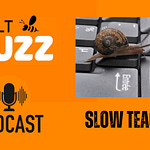
30 English language teaching myths.
[View this video on our YouTube channel]
I’ve always been a big advocate of continued reflection by teachers, especially regarding their own beliefs vis a vis teaching and learning. Especially the continued development of one’s philosophy of education.
I don’t think we pay or give much attention to this in teacher training programs. Many teachers don’t create their own system but are many times ruled by another’s (to paraphrase Blake). Too often teachers just adopt a certain belief system – be it that of their textbook (say Gass & Selinker), their TEFL trainer, the CELTA or even just remaining mired in their own belief system created and ruled by 1,000s of hours sitting in class – how they were taught.
In my teacher training, I’ve often given teachers this short questionnaire and then got them discussing their fundamental beliefs about being a teacher and teaching. I’ve yet to do the same regarding teaching and learning a language (save for my reflective journal – Zen and the Act of Teaching which kind of does so) but I think our profession needs to develop a platform to do so.
So today I thought I’d address some myths in the classroom. Here is a list. Which do you believe as true? Which do you fundamentally, absolutely disagree with? Also, see my 5 top myths I think we have about how we learn, learning.
It’s a rough list and maybe a lot of them aren’t phrased well enough, clear enough, but it’s a start.
What do you believe? Which are true? Which are in the realm of myth? Comments appreciated.
Download this list as a handout here.
Students prefer native speakers as teachers.
Students acquire and learn the linguistic errors teachers make when teaching.
The accent of a teacher affects the learning of their students.
Native speakers are the best models for pronunciation.
Students learn what teachers teach.
Students acquire language in the same set order.
A noisy class is the best class and a sign of language learning.
There is a one standard correct English language.
You need to know the underlying rules of a language in order to learn the language.
There is one correct way to learn a language. Some know it. Some don’t.
There is one correct way to teach a language. Some know it. Some don’t.
You can learn a language just by attending school and doing exercises.
The more a teacher knows about language and language learning, the better they can teach.
We think in a language.
The best way to learn a language is to speak it.
You have to know you are learning or you won’t learn any language.
The language we speak changes the way we see and experience the world.
Adults aren’t as good at learning languages as children.
Teachers need at least a C1 level to teach English.
The more words a student knows, the better they can speak a language.
Women make better teachers for young learners.
Teachers with lower level fluency should teach beginners.
It is best to learn to both speak and write language at the same time.
There is a special area of the brain devoted to language and making meaning from sound.
Words are stored in special parts of the brain. Language learning is an effort to better retrieve and access this storage.
Among average people, some are innately better at learning languages than others.
I’m bilingual so I’m more intelligent than my monolingual peers.
If my children are hearing many languages at home, they’ll get confused and never learn to speak one language well.
There is a sexual differentiation governing the ability to learn a language. Girls learn languages quicker and better.
If a student can speak a language well, they are fully fluent in the language.
What language teaching myth do you think is most pervasive and should be the first done away with? Let us know in the comments. Thanks for listening!










